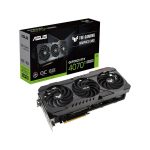
If you are waiting on news of Intel’s upcoming Rocket Lake processors then I have something for you today. One of our sources provided us with the complete technical specifications of Intel’s upcoming Core i9 and Core i7 Rocket Lake family. Intel’s Rocket Lake architecture represents the first significant architectural upgrade in over 6 years and will feature PCIe 4.0. It will finally allow Intel to achieve parity with AMD’s PCIe 4.0 equipped Zen platform as well as a massive IPC boost over Skylake.
Intel Rocket Lake Core i7 and Core i9 CPU lineup with final turbo boost frequencies
Before I begin, keep in mind that the B-0 stepping is essentially the QS sample and while this revision is usually final, Intel may decide to polish these some more. In that case, the final variant could potentially be better than this – but not worse. The company’s flagship Rocket Lake CPU, the Core i9 11900K will be able to boost to an astounding 5.3GHz single-core and 4.8GHz all-core thanks to Intel’s incredibly mature 14nm process.
Combined with the IPC increase we are seeing, this should put an incredible amount of competitive pressure on AMD’s Zen 3 lineup. While we aren’t making any claims yet, I would not be surprised if Intel retakes the performance crown from AMD in 2021. Without any further ado, here is the Core i7 and Core i9 lineup:
Intel is preparing a total of 10 SKUs in the Core i7 and Core i9 families for launch (at least in the near future). TDPs range from a measly 25W all the way up to 125W. Depending on whether you prefer energy efficiency or raw performance, there is ample variety for everyone. Intel’s flagship processor, the Intel Core i9 11900K has an incredible single-core boost of 5.3 GHz coupled with an all-core of 4.8 GHz. These will be super-binned chips that have been qualified to perform at this speed and will be shipped en masse. Considering this is 14nm, the availability of these SKUs should be very good. There are also Core i9 11900KF, Core i9 11900T, Core i9 11900 and Core i9 11900F flavors in this family. Intel has even managed to provide an all-core boost of 3.7GHz in 35W TDP with the Core i9 11900T. [caution: opinion] I personally expect the Core i9 series to outperform Zen 3 based offerings from AMD. [/opinion].
For the Core i7 parts, all core boost will be around 4.6 GHz while the single-core boost will be 5.0 GHz. These are lower binned variants that will be much cheaper than the Core i9 parts. They will still offer the 18% IPC increase over last generation (skylake-based uArch) and PCIe 4.0 with the one thing that probably matters the most right now: supply. With TSMC bottlenecked, Intel has a real chance to gain market share if they can ship Rocket Lake in volume. Considering its based on 14nm – we see no reason why they would not be able to just that. Based on leaked benchmarks, we expect the Core i7 family to perform just slightly worse than AMD’s Zen 3 based offerings / achieve parity in some cases.
Rocket Lake is shaping up to be the most exciting offering from Intel in almost 6+ years. With the maturity of the 14nm and readily available volume, the company might just succeed in selling its “process-decoupled” philosophy. Unlike GPUs, which are dependant on more than one supply constraint (memory/materials etc), CPUs are primarily dependant on the foundry – and with Intel Foundries perfectly tooled for 14nm – this is their chance to recapture some of that lost market share.
The post Exclusive: Intel Rocket Lake Core i7, Core i9 CPU Lineup And Specifications by Usman Pirzada appeared first on Wccftech.
Powered by WPeMatico







